Fifa has to change its culture - ethics investigator Michael Garcia
- Published
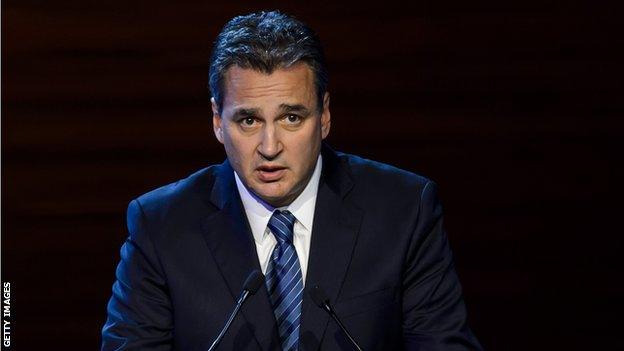
Michael Garcia was speaking at an event organised by the American Bar Association in London
Fifa's chief independent ethics investigator has called for a "change of culture" at the organisation.
In a thinly veiled attack on president Sepp Blatter's leadership, Michael Garcia reiterated the need for "greater transparency".
"The investigation and adjudication process operates in most parts unseen and unheard," continued Garcia.
He added that the organisation needs a "leadership that sends a message that the rules apply to everyone".
Talking about the current investigation process, Garcia said: "That's a kind of system which might be appropriate for an intelligence agency but not for an ethics compliance process in an international sports institution that serves the public and is the subject of intense public scrutiny."
Four years of controversy |
|---|
2 December 2010 - Russia and Qatar are chosen to host the 2018 and 2022 World Cup. There are fears over the dangers of playing games in Qatar temperatures that can reach 50C |
4 October 2013 - Fifa agrees to set up a taskforce to look into alternative dates for the 2022 World Cup in Qatar |
1 June 2014 - The Sunday Times alleges that former Fifa vice-president, Mohamed bin Hammam, paid £3m to football officials in return for support for the Qatari bid |
1 June 2014 - Qatar's 2022 bid committee issues a statement denying "all allegations of wrongdoing" |
5 September 2014 - The report into the 2018 and 2022 World Cup bidding process is submitted to Fifa by Michael Garcia |
27 September 2014 - Sepp Blatter rejects calls for the report to be made public |
American lawyer Garcia concluded his lengthy investigation into the 2018 and 2022 World Cup bidding process last month and handed his report to Fifa's ethics adjudicator Hans Joachim Eckert, but he is disappointed by the world governing body's insistence on keeping his report confidential.
In a keynote speech at an event organised by the American Bar Association in London, Garcia added: "The natural next step of the development of an effective ethics process at Fifa is greater transparency.
"The second element that is vital to fulfilling the promise of this reform process is tone at the top.
"More simply put, the second element an institution like Fifa needs in order to meet the challenge of ethics enforcement is leadership. An ethics committee - even a serious, independent ethics committee backed by a strong code of ethics - is not a silver bullet.
Sepp Blatter in focus |
|---|
Born: 10 March 1936, Switzerland |
Has a degree as Bachelor of Business Administration and Economics from the University of Lausanne |
Played football in the Swiss amateur league |
Fifa technical director 1975-1981 and general secretary 1981-1998 |
Was elected as the eighth Fifa president on 8 June, 1998 |
"What is required is leadership that sends a message that the rules apply to everyone; leadership that wants to understand and learn from any mistakes or mis-steps the ethics committee may have identified; leadership that makes it clear to everyone - this is what we've set up the ethics committee to do, this is why they do it, and this is what they've done.
"It's that kind of leadership that breathes the life into a code of ethics. Because true reform doesn't come from rules or creating new committee structures. It comes from changing the culture of the organisation."
Garcia's views on publishing the report have been supported by a number of Fifa executives, including Uefa president Michel Platini and Britain's representative Jim Boyce.
But Fifa president Blatter insists the contents of the report must remain confidential, and that no member of his executive committee made a specific request when the issue was raised in a meeting earlier this month.
Garcia said other sports organisations have already demonstrated the value of transparency, highlighting the publication of a report into allegations concerning the 2002 Winter Olympics being awarded to Salt Lake City, which allowed the International Olympic Committee to "move forward".
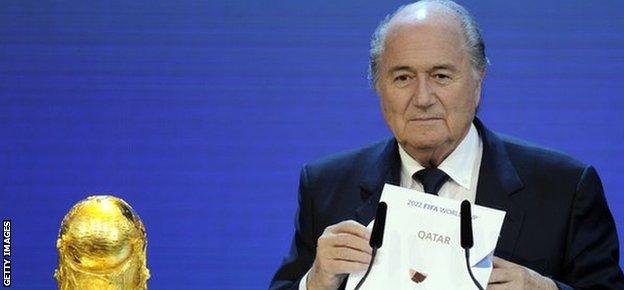
Qatar was awarded the 2022 Fifa World Cup in December 2010
He added: "We have seen that recently with the NFL where a lack of transparency in its initial investigation concerning Ray Rice fostered scepticism and questions about the integrity of its leadership. Now the NFL has has to bring in outside counsel to investigate the investigation.
"Notably, the NFL has made clear the results of the new investigation will indeed be made public.
"That in turn would help foster a culture of compliance internally and would promote more confidence in the system from the public, its partners and the millions of fans who follow and love the game."
Garcia said the aim of transparency is not "to embarrass certain individuals" or "harm the organization", but rather the opposite.
"It's one thing to tell people that a rigorous process is in place. It's another thing to show them how that process works and what it has uncovered," he explained.
"Fifa built the system that should inspire confidence that things have changed for the better. Showing that to the public serves Fifa's best interest."
- Published6 October 2014
- Published2 October 2014
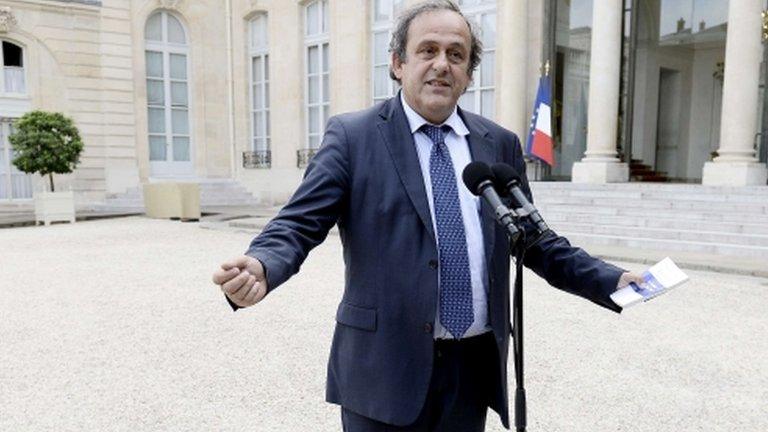
- Published7 October 2014
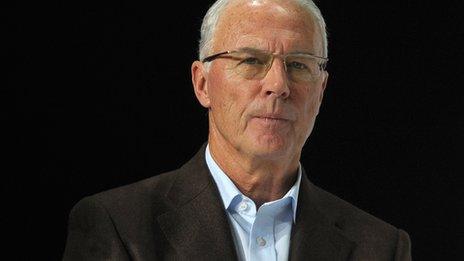
- Published5 September 2014
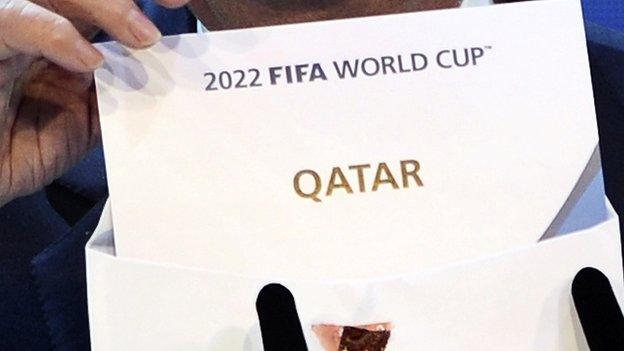
- Published7 June 2019
